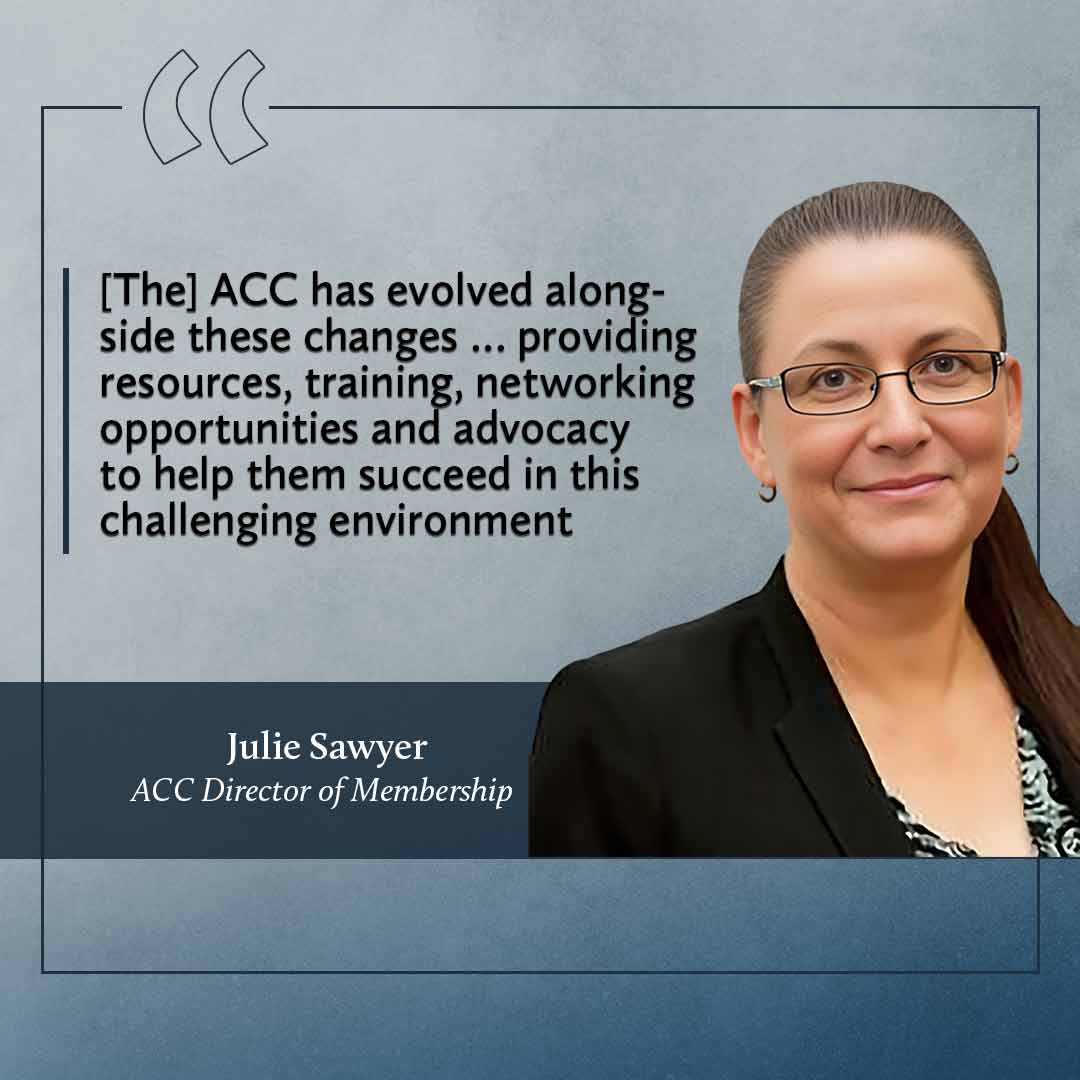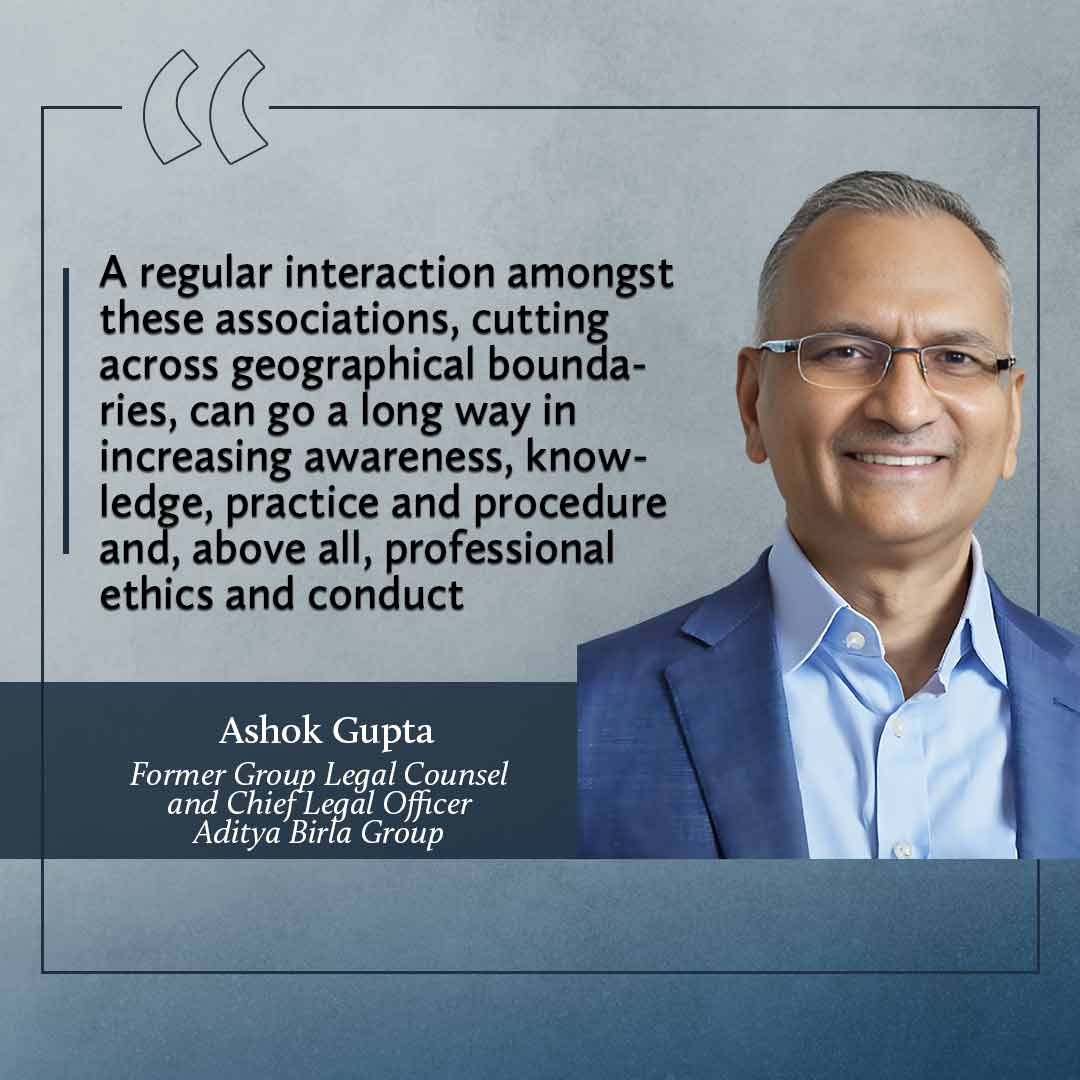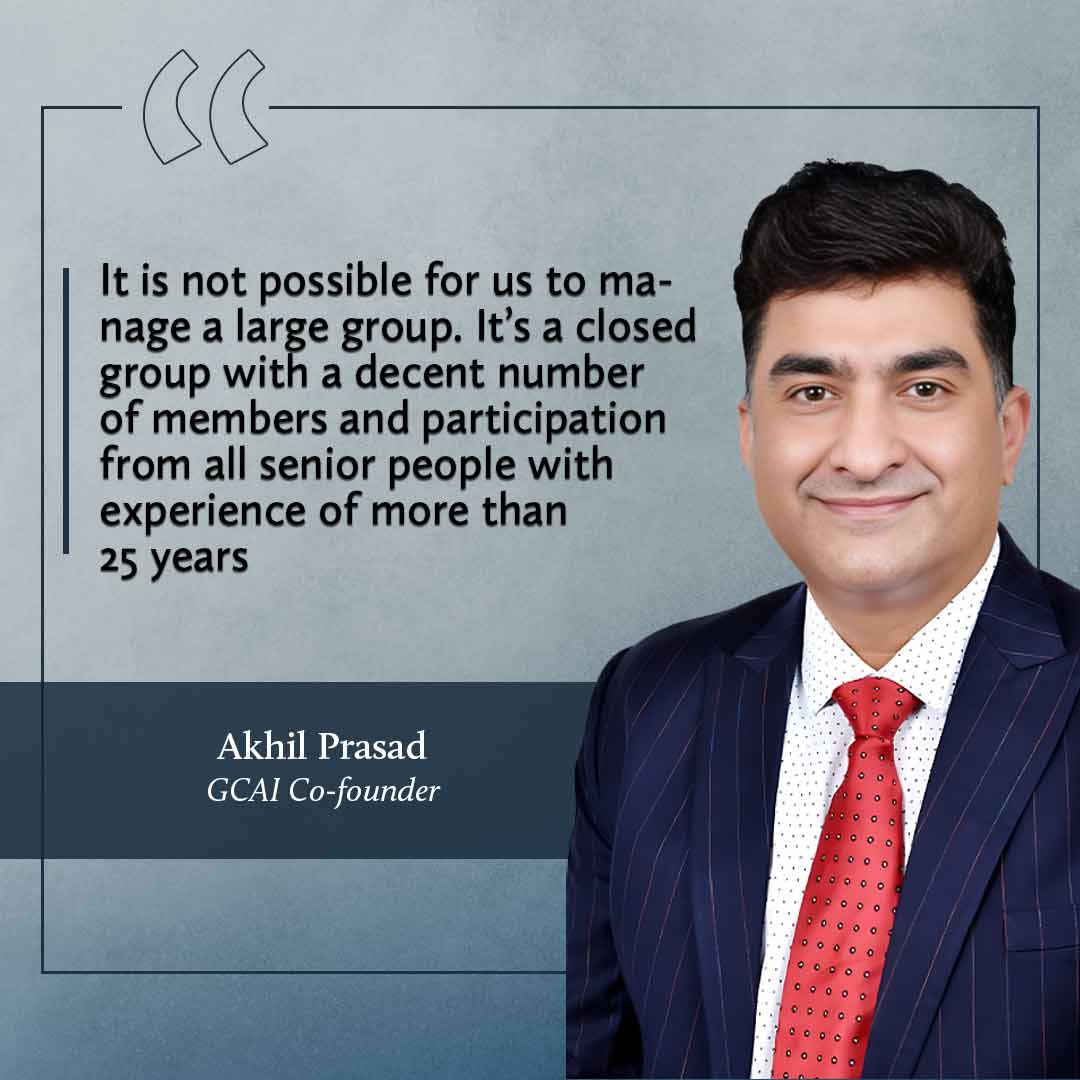The alliances among associations dedicated to the growth and development of corporate counsel in Asia seem to have become a numbers game. So, is everyone on the same side? Freny Patel reports
Just three months old and very much a babe in the woods, Thailand’s first formal association for in-house counsel has decided to initially align itself with the Asia Pacific Corporate Counsel Alliance (APCCA). The Thai Corporate Counsel Association (Thai-CCA) launched in June this year. It is the seventh national association to join the APCCA, following others from India, Indonesia, Malaysia, the Philippines, Singapore and Sri Lanka. “As a brand new association, we prefer to ally with every in-house organisation in the region so that we can learn from them and consider what operating model would work best for our Thai in-house legal community,” Bangkok-based association founder, Sahachai Wibuloutai, tells Asia Business Law Journal, sister publication to India Business Law Journal. Wibuloutai – general counsel at PwC for Thailand and the Mekong region – says an association dedicated to in-house counsel did not previously exist, despite Thailand’s thriving legal community being the third-largest in the APAC region based on licensed lawyers admitted to the Thai Bar.
There was a lack of awareness of the possibilities, stemming from a knowledge gap among different generations and industries.
Wibuloutai says the Lawyers Council of Thailand, led by the late Professor Marut Bunnag, endured a 15-year struggle before it was legally recognised. Regrettably, the legal protection afforded to council lawyers was not extended to in-house counsel in the private sector.
Some of the key reasons for Thailand not already having an established growth and development association for in-house counsel were the lack of a strong network of professionals, lack of funding, and a lack of understanding about who should spearhead and promote such an organisation.
Given this history, Wibuloutai says it was both opportune and inspiring to engage with the Association of Corporate Counsel (ACC) Hong Kong (formerly the Hong Kong Corporate Counsel Association), the Singapore Corporate Counsel Association (SCCA) and the ACC Singapore. This led to the conception of the Thai-CCA. Unlike other bar associations in major jurisdictions, the Thai Bar Association does not mandate that members continually improve their legal knowledge. So, with corporate counsel being disconnected from important legal trends and innovations, the time was ripe for a dedicated, knowledge-sharing institution to support future generations.
Wibuloutai predicts that the Thai-CCA will have a membership of about 1,000 in-house counsel by the end of 2023, against the estimated total number of in-house counsel in Thailand exceeding 10,000. The association aims to strengthen its community by offering knowledge sharing, networking and community development activities.
“The allure of membership lies in the numerous professional development opportunities it presents for networking, knowledge sharing, career opportunities and collective advancement within the legal community,” he says.
Alliances make a difference
Alliances with regional associations like the APCCA and global networks of associations like the ACC and In-house Counsel Worldwide (ICW) are expected to play a vital role in imparting knowledge, best global practices and networking opportunities to Thai corporate counsel.
“A regular interaction amongst these associations, cutting across geographical boundaries, can go a long way in increasing awareness, knowledge, practice and procedure and, above all, professional ethics and conduct,” says Ashok Gupta, former group legal counsel and chief legal officer at Aditya Birla Group in New Delhi. This is possible given the convergence of legislation across the globe – in data privacy, cybersecurity and antitrust – largely triggered by digitalisation.
Arlene Lapuz Ureta, the APCCA secretary-general in New York, agrees that corporate counsel increasingly rely on associations to provide the knowledge, information, skills and access to best global practices to become “effective and efficient”.
The ACC’s Brisbane-based director of membership and member services for APAC, Julie Sawyer, says the association’s role in Asia is more critical than ever given changing and complex regulatory environments that require corporate counsel to navigate intricate legal frameworks across multiple jurisdictions.
“[The] ACC has evolved alongside these changes … providing resources, training, networking opportunities and advocacy to help them succeed in this challenging environment,” says Sawyer. This is because the role of corporate counsel has evolved. In the past, they were just employees tasked to ensure legal compliance. Today, they are treated more like strategic business partners in the decision-making process.
The ACC is focused on international growth, including in the Asia-Pacific. With more than 45,000 members across 60 countries, the association offers unique value to its members through tailored resources, high-quality local events, and networking opportunities both locally and internationally, says Sawyer.
Similarly, one of Ureta’s key goals since taking over as the secretary-general a year ago is to expand the membership of the APCCA to include more country members. “We plan to bring in more corporate counsel associations from the Asia-Pacific region to join our alliance, which means inviting them to attend our networking activities and, hopefully, getting them to be members and allies in our drive to promote the best interests of in-house legal counsel,” says Ureta.
Easier said than done, as challenges for effectively engaging association leaders requires travel, face-to-face meetings, and the building of trust that assistance is not related to some simple power grab.
Ureta says the APCCA aims to become a strong regional alliance of in-house counsel associations, recognised and respected, and with opinions and contributions that are sought to harmonise laws across different jurisdictions.
The APCCA is exploring links with other regional in-house associations and will shortly resume discussions with the Korea In-house Counsel Association (KICA), she says.
The KICA boasts members from more than 80 companies, including some of South Korea’s most prominent enterprises. Its Seoul-based president, Kim Sunghan, says this signifies the organisation’s reach beyond national borders. “The KICA has consistently entered into business agreements with numerous related organisations, both domestically and internationally,” says Kim.
Pandemic challenges
Regulatory changes are not the sole challenge for in-house counsel. Probably one of the biggest roadblocks was the onslaught of the covid-19 pandemic that hit in early 2020.
Businesses across the world struggled to adjust to social distancing rules, and corporate legal departments had to think outside the box and set up virtual operations as “work from home” occurred virtually overnight.
“The ACC’s chapters around the world faced a variety of challenges and the global association stepped up … providing access to networking, virtual events, training and online resources,” says Sawyer. “The ACC swiftly transitioned to digital platforms. This experience has transformed how we operate, with a greater emphasis on digital engagement and flexibility.”
The association introduced a new series called INConversation: Insights from Influential In-house Leaders, which featured discussions with prominent general counsel. “These engaging conversations provide a wonderful opportunity for members to learn, share expertise and connect with colleagues,” says Sawyer.
The ACC was not alone. The APCCA expanded its own reach through a regional webinar series called Understanding the Country’s Regulatory and Business Framework arising from Covid-19. Covering 11 Asian countries, the webinars were held almost every two weeks. They were led by the APCCA’s former secretary-general, Reza Topobroto in Jakarta, then director of secretariat Ravi Thailkawardana in Colombo, and director of international relations Anil Changaroth in Singapore.
Webinars and online networking events became the practical norm for three long years due to limitations on the size of gatherings.
The KICA’s small-scale meetings received low participation from new members. However, existing members were drawn by the significant advantage of being able to participate in seminars without the limitations of time and location, even if attendance wasn’t mandatory, says Kim. “Existing members contemplated their future endeavours and forged stronger connections among themselves,” he says.
Today, the KICA is revitalising itself, attracting new participants through organised activities and events.
During the pandemic, the KICA and the Japan In-House Lawyers Association (JILA) forged closer ties. They signed a co-operation agreement in January 2021 to bolster research and knowledge sharing. While many existing in-house associations faced initial challenges from the pandemic, India saw the birth of two new associations – the Federation of Indian Corporate Lawyers (FICL), incorporated in May 2020, and the General Counsels’ Association of India (GCAI), established in March 2021.
The FICL was established after an earlier association failed, says founder and chief executive officer Ashok Sharma from New Delhi. “[The] FICL sought to maintain the continuity to provide a platform for general counsel in India for networking and their professional development.”
Similar to the Thai-CCA, membership at the FICL is complimentary. The three-year-old Indian association boasts 1,800-plus members. The FICL is a member of both the APCCA and the ICW. Members of the latter association span 14 countries worldwide.
Within Asia, they include the Indonesian Corporate Counsel Association, the In-house Lawyers Association of New Zealand, the Legal Management Council of the Philippines, the Malaysian Corporate Counsel Association and the Singapore Corporate Counsel Association.
The ACC also has plans to expand its reach into India. “We’re making steady progress and remain committed to serving our members in India effectively,” says Sawyer. At present, the ACC serves in-house lawyers in India through its networking group, where advocacy for the in-house counsel profession is a central focus.
The entry of overseas associations would be complementary, not competing with local ones, says Sharma.
India’s fight for recognition
Although in-house counsel are key personnel at any corporation, in India they are not recognised under any statute. With a lot at stake – and not merely a question of wearing black robes to argue before courts or statutory bodies – various bodies and associations of general counsel are pleading with the government and the Bar Council of India for statutory recognition with equal rights and privileges to practising lawyers. In fact, the GCAI was established largely to seek recognition of in-house counsel as an area of legal practice, and ensure they have rights to legal privilege, says Akhil Prasad in New Delhi, co-founder of the association.
Sharma says there has not been much progress. “We are trying to persuade the Bar Council of India in this regard,” he says.
The law presently does not permit in-house counsel to be part of the legal profession, but Sharma suggests the Bar Council could create a department that recognises in-house counsel on similar lines as that of the Law Society of England.
The GCAI is building itself as an influential body and, unlike its counterparts, it is not aiming to strengthen membership by numbers but by industry representation. It screens in-house counsel before inviting them to become members. The association is looking for those who are keen to support GCAI activities, and who are ready to bring about a change for the legal profession.
Its members represent all key industry sectors. “It is not possible for us to manage a large group. It’s a closed group with a decent number of members and participation from all senior people with experience of more than 25 years,” says Prasad.
“It is important for the GCAI to have representation from all industry sectors, to represent the interest of all GCs and in-house counsel.”
India has several associations for general counsel. It seems the Bar Council wants to talk with a couple of leading players towards consolidating the associations. Sharma does not support this move.
“Every association has its own flavour and its own objectives, and consolidation is not practically possible,” he says, adding no association can claim that it represents the entirety of India.
Prasad agrees, and says every association has different objectives which, collaboratively, can only benefit the legal profession. “India’s ecosystem is broad enough to permit every association to work together harmoniously,” he says.
Sawyer says the ACC believes in the power of collective action to advance the profession of in-house counsel and that, in a country like India, “there will always be a role for the many domestic, high-quality associations”. Sawyer says that forming alliances with local or national associations “can be complex” due to various factors including differing priorities, regulatory environments and the needs of members.
The APCCA seemingly has a great deal of catching up to do in terms of the number of members associations. But as Ureta says: “We have never considered the ACC a competitor.”






























